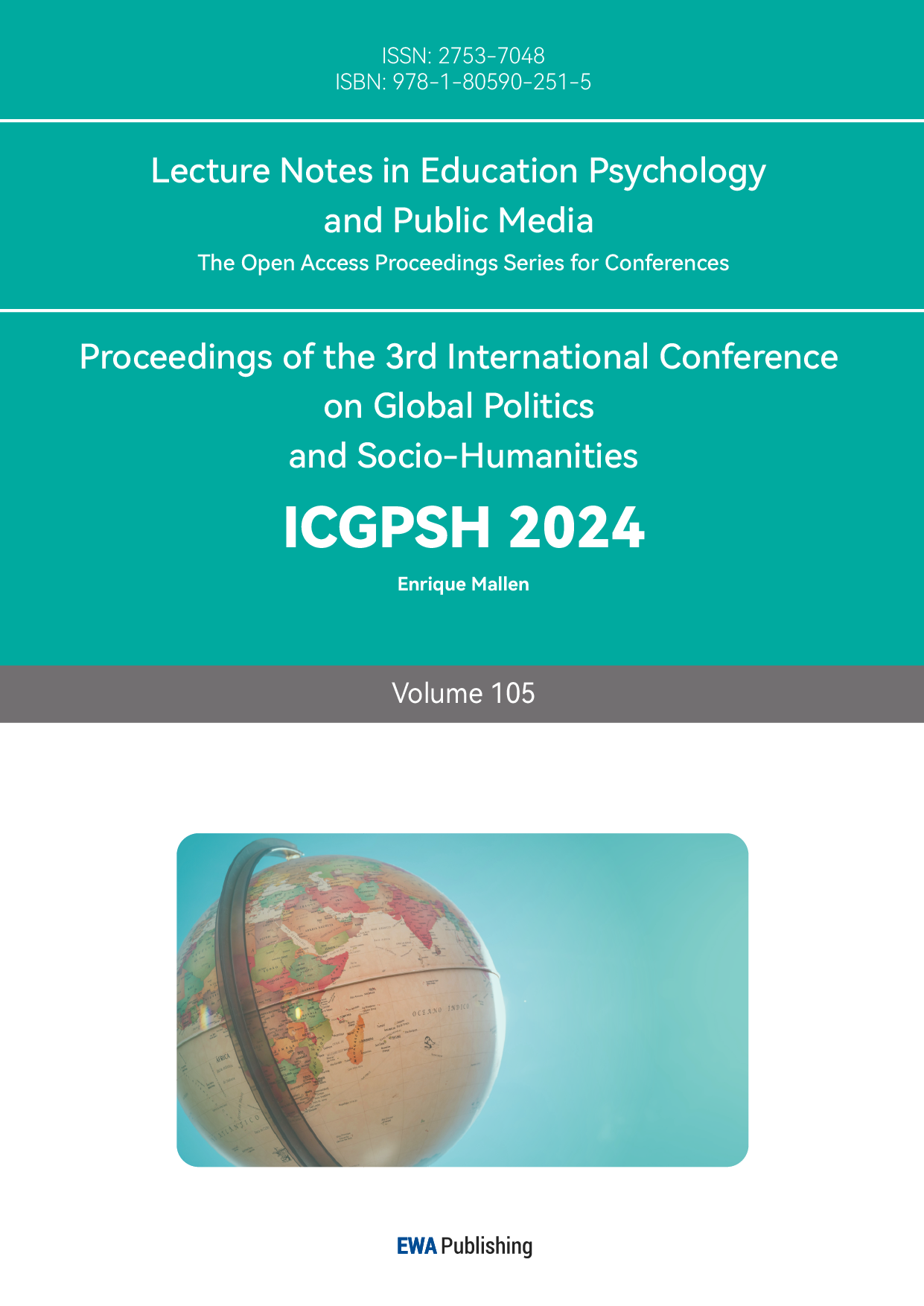References
[1]. Zhang, Y., Cui, C., He, Y., & Wang, L. (2022). Does Private Supplementary Tutoring Matter in Chinese Students’ Learning of Mathematics: A Longitudinal Study. ZDM: Mathematics Education, 54(3), 737–747.
[2]. Yu, K., Martin, A. J., Hou, Y., Osborn, J., & Zhan, X. (2019). Motivation, Engagement, Academic Buoyancy, and Adaptability: The Roles of Socio-Demographics among Middle School Students in China. Measurement: Interdisciplinary Research and Perspectives, 17(3), 119–132.
[3]. Poole, A. (2017). Interpreting and implementing the IB Learner Profile in an internationalized school in China: a shift of focus from the ‘Profile as text’ to the ‘lived Profile.’ Journal of Research in International Education, 16(3), 248–264.
[4]. Guo, Y., Yan, J., & Men, T. (2021). Chinese Junior High School Students’ Mathematical Problem-Posing Performance. ZDM: Mathematics Education, 53(4), 905–917.
[5]. Jian-Xin, Y., Yu-Xuan, X., Tian, L., Chu-Fan, D., Yu-Ying, G., & Fortus, D. (2023). Disciplinary Learning Motivation and Its External Influencing Factors: Taking Physics in a “Selection Crisis” as an Example. Research in Science Education, 53(4), 823–839.
[6]. Kang, X., & Wu, Y. (2022). Investigating the Linkage between School Psychological Capital and Achievement Emotions in Secondary School Mathematics. Asia-Pacific Education Researcher, 31(6), 739–748.
[7]. Wright, E., Lee, M., & Feng, S. (2018). Shadowing the International Baccalaureate: Private Supplementary Tutoring for the Diploma Programme in China. Educational Research for Policy and Practice, 17(2), 127–143.
[8]. Yao, Y., Kong, Q., & Cai, J. (2018). Investigating Elementary and Middle School Students’ Subjective Well-Being and Mathematical Performance in Shanghai. International Journal of Science and Mathematics Education, 16(1), 107–127.
[9]. Xue, Y., Gu, C., Wu, J., Dai, D. Y., Mu, X., & Zhou, Z. (2020). The Effects of Extrinsic Motivation on Scientific and Artistic Creativity among Middle School Students. Journal of Creative Behavior, 54(1), 37–50.
[10]. Zhao, H., Alexander, P. A., & Sun, Y. (2021). Relational Reasoning’s Contributions to Mathematical Thinking and Performance in Chinese Elementary and Middle-School Students. Journal of Educational Psychology, 113(2), 279–303.
[11]. Chen, J., Wang, X., & Zheng, X. (2024). The Investigation of critical thinking disposition among Chinese primary and middle school students. Thinking Skills & Creativity, 51, N.PAG.
[12]. Luo, Z., Yang, Y., Sun, J., Yuan, W., Liu, S., & Wang, L. (2024). Motivational profiles in mathematics among Chinese secondary school students and their relations with perceived parent/teacher goals and academic achievement. Educational Psychology, 44(4), 395–414.
[13]. Zhang Y, Yang X, Sun X, et al. The reciprocal relationship among Chinese senior secondary students’ intrinsic and extrinsic motivation and cognitive engagement in learning mathematics: A three-wave longitudinal study [J]. ZDM–Mathematics Education, 2023, 55(2): 399-412.
[14]. Wang G, Zhen Y, Chen X, et al. Mathematical metacognitive characteristics of Chinese middle school students in efficient mathematics learning [J]. ZDM–Mathematics Education, 2022, 54(3): 543-554.
[15]. Zhang, Y., Wu, X., Cui, C., Chen, S., He, Y., & Wang, L. (2024). Effect of private tutoring on students’ non-cognitive mathematics learning outcomes in China. International Journal of Educational Development, 107, N.PAG. https: //doi.org/10.1016/j.ijedudev.2024.103029



